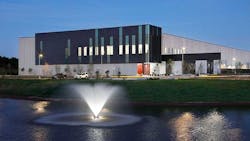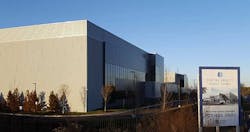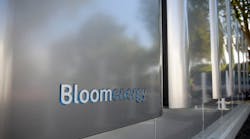The growth of cloud computing continues to transform the landscape in “Data Center Alley,” the fast-growing data center hub in Northern Virginia. The appetite for cloud capacity has prompted a burst of data center leasing and land deals, as data center developers lay the groundwork for the next phase of cloud growth.
Northern Virginia is already the world’s largest data center market, and is about to get even bigger. Three service providers have recently acquired land in Loudoun County to enter the market, while recent property deals suggest more large data centers are on the way.
Land values have soared past $1.2 million an acre in recent deals in Ashburn, the region’s largest Internet traffic intersection. Deals currently in the works could exceed that valuation, as the scarcity of prime development sites drives prices higher.
Data center customers continue to lease lots of data center space in Northern Virginia, albeit at a slightly less torrid pace than 2016, which set a record for market absorption. Real estate firms say things could heat up in the waning months of 2017, and that 65 percent of the wholesale space coming to market has already been pre-leased. Last week Digital Realty said it has recently leased 28 megawatts across its three campuses in Ashburn.
Meanwhile, existing providers are rolling out new capacity, with Equinix opening its newest data center campus last week. The list of companies with data center space in development in Data Center Alley includes Digital Realty, RagingWire Data Centers, Amazon Web Services, Sabey Data Centers, Vantage Data Centers, QTS Data Centers, CoreSite and CyrusOne.
New Leasing Gains Momentum
“We’re seeing high-level demand as users try to get close to public clouds and third-party traffic exchanges,” said Kristina Metzger, a Data Center Solutions specialist at real estate firm CBRE. “Northern Virginia is the most dynamic market today. We believe strong growth will continue.”
In the first half of 2017, leases were signed for between 4o and 45 megawatts (MW) of data center capacity, according to reports from CBRE and another real estate firm, Jones Lang Lasalle (JLL).
“There’s a lot of activity happening, and there will be great demand,” said Allen Tucker, Managing Director at JLL.
Last week Digital Realty reported a number of large leases of data center space in Ashburn. This included separate pre-lease transactions of 15 MW and 7MW at data centers being built by DuPont Fabros Development (which Digital Realty recently acquired), as well as a 4.5 MW lease for the last available space at its Digital Loudoun campus, and a 1.5 MW lease for the huge Building L on its new campus in Ashburn.
“This was obviously a big winning quarter for us on all of our three major locations in Ashburn,” said Andrew Power, Chief Financial Officer of Digital Realty, on the company’s recent earnings call.
Digital Realty Trust recently leased 4.5 megawatts of capacity at its Digital Loudoun campus in Ashburn, Virginia. (Photo: Rich Miller)
That’s just a fraction of the deals to come, according to CBRE’s Metzger. In a presentation at the recent 7×24 Exchange Fall Conference in Phoenix, she said that CBRE is tracking 119 megawatts of new construction in the Northern Virginia market, with about 65 percent of that space already pre-leased.
Jeff West, the Head of Data Center Research (Americas) for CBRE, said the activity in Northern Virginia could nudge the U.S. data center market closer to record levels seen in 2015 (a total of 200 MW) and 2016 (180 MW).
“The perception for the first half of the year is that it was slow,” said West. “Hyperscale users have not been as active, but we expect that to change in the second half of 2017. If that (pre-leased capacity) is all delivered in the second half of the year, we could easily eclipse 2016.”
JLL’s Tucker says that although activity in the Ashburn market was perceived to have eased in the first half of 2017, it easily outpaced leasing in all other U.S. markets, including Chicago, Dallas and Silicon Valley. Tucker attributes the fluctuations to “market lumpiness,” a term for the intermittent nature of the largest deals. He said the level of leasing is closely tied to the availability of new data center inventory.
“It takes time to acquire land and zone land and build data center capacity,” said Tucker. “You’ve got to be very strategic about lead times, and particularly about the amount of site work needed.”
Land: They’re Not Making Any More of It
Perhaps the best lens on the growth in Northern Virginia is the land grab to secure property for future data centers. The recent land deals highlight two trends – the competition for the remaining development properties in the heart of Ashburn, and the growing appeal of areas to the south and west.
In Ashburn, Vantage Data Centers and QTS Data Centers have each bought land to create large data center campuses.
QTS Data Centers said last week that it has acquired two parcels of land in Ashburn totaling 52 acres of land, where it plans to build 700,000 square feet of data center space and 140 megawatts of IT capacity. QTS has started construction on the first 24-acre parcel of land, and expects to deliver its first phase by mid-2018. QTS said it has pre-leased 2.2 megawatts of the 4-megawatt first phase to a global health insurance provider.
QTS Data Centers has plans for a large data center on land it has purchased in Ashburn, Virginia. (Image: QTS Data Centers)
Vantage Data Centers plans to build more than 1 million square feet of data center space on 42 acres of land it recently acquired at the intersection of Route 28 and Waxpool Road. The company says it will invest more than $1 billion to create 108 megawatts of IT capacity.
Those two announcements reflect the impact of new players on data center supply in Ashburn, as they promise to create 248 megawatts of new space over the next several years.
Demand Drives Prices Higher
The strong demand for land for future data centers was reflected in the pricing of recent deals. QTS paid $36 million for a 28-acre campus off Lockridge Road known as West Dulles Station, or about $1.28 million per acre. That’s more than the previous record transaction of $1 million per acre for an Equinix purchase earlier this year. There are reports that the pending sale of the Christian Fellowship Church, which borders the main Equinix campus in Ashburn, could also fetch a high price when it closes.
“Land will be a significant issue in Loudoun,” said Bill Stein, CEO of Digital Realty. “I think that’s why you’re seeing this sort of mad rush to acquire land, because the availability of suitable sites is definitely depleting.”
“As a result of the continued development over the past several years, available land for future development in Ashburn has become increasingly scarce,” said Chad Williams, the CEO of QTS Data Centers. “We are excited about the opportunity to secure our future growth capacity in a strategic market. People are focused on getting their location secured in Ashburn.”
That’s why developers are expanding their field of vision, and looking for prime sites around the perimeter of Data Center Alley, traditionally defined as the cluster along Loudoun County Parkway in Ashburn.
One new area of focus is an area west of Ashburn near Leesburg, where the newly-opened Panda Power Stonewall project generates up to 778 megawatts of electricity from natural gas. Compass Datacenters has acquired a 105-acre property in the area where it hopes to build a data center campus. The company is working with Loudoun County officials, who are still crafting a development strategy for this part of the county. Another property near the Compass site recently changed hands, a possible sign that data center operators are banking land for future development.
A new Amazon data center under construction in Sterling, Virginia. (Photo: Rich Miller)
There has also been real estate activity to the south, on land surrounding Dulles Airport. There are several properties in Arcola, to the west of the airport, that are being marketed for data center development. One of those properties was recently acquired, prompting speculation that more data center growth lies ahead.
One company that already has several data centers in that area is Amazon Web Services, which is working with several developers in Northern Virginia to ensure that it has a ready supply of new space for its fast-growing cloud capacity. The company also has several data centers under construction in Sterling, at a new development site known as Paragon Park, adjacent to an existing Amazon facility.
That cloud growth is the driving force behind the activity in Northern Virginia. Industry executives say that Ashburn illustrates how the rise of hybrid deployments is providing growth for both hyperscale cloud builders and service providers.
“We’re one of the places the cloud lives,” said Jim Leach, Vice President of Marketing at RagingWire Data Centers. “In the last three years, we’ve doubled in size, and that’s largely driven by cloud. Cloud providers are our largest customers, and now enterprises are building private clouds. It’s not an either-or, it’s really a win-win-win.”
About the Author



